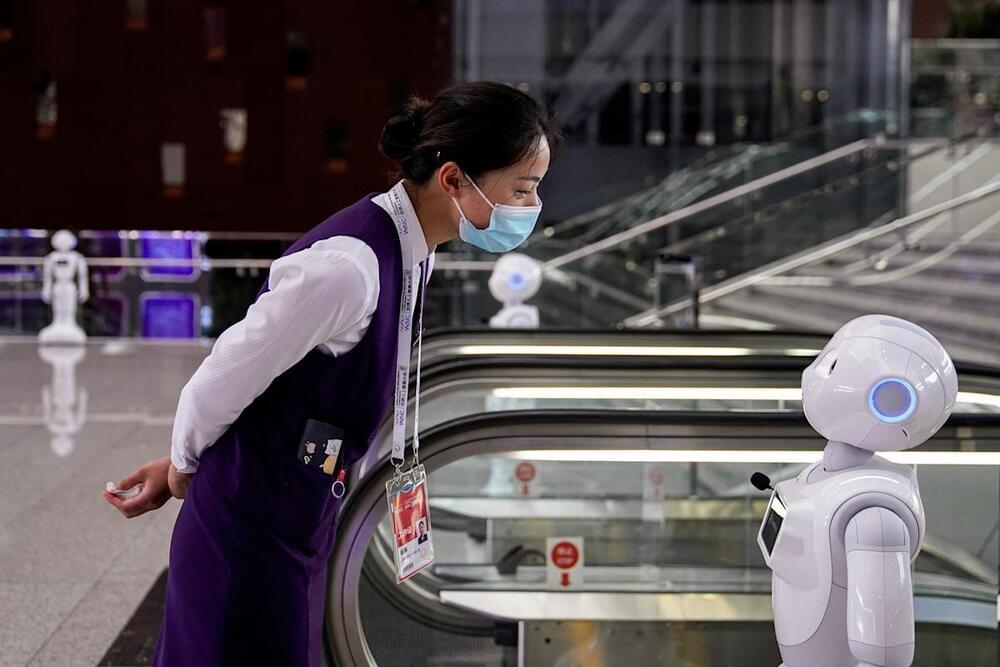The White House Office of Science and Technology Policy is developing principles to guard against powerful technologies—with input from the public.


Advanced Nuclear Power Advocacy For Humanity — Eric G. Meyer, Founder & Director, Generation Atomic
Eric G. Meyer is the Founder and Director of Generation Atomic (https://generationatomic.org/), a nuclear advocacy non-profit which he founded after hearing about the promise of advanced nuclear reactors, and he decided to devote his life to saving and expanding the use of atomic energy.
Eric worked as an organizer on several political, union, and issue campaigns while in graduate school for applied public policy, taking time off to attend the climate talks in Paris and sing opera about atomic energy.
Eric began his full time nuclear work in May of 2016 with Environmental Progress by organizing marches, rallies, and trainings in California, New York, and Illinois, before leaving to found Generation Atomic in late 2016.
In only a short period of time, Generation Atomic has made significant progress in the world of nuclear advocacy. Over the last year they’ve held several advocacy trainings at conferences, Marched for Science, talked to over tens of thousands voters, and carried the banner for nuclear energy at the climate talks in Morocco, Germany, and Poland.

Without a new legal framework, they could destabilize societal norms.
Autonomous weapon systems – commonly known as killer robots – may have killed human beings for the first time ever last year, according to a recent United Nations Security Council report on the Libyan civil war. History could well identify this as the starting point of the next major arms race, one that has the potential to be humanity’s final one.
Autonomous weapon systems are robots with lethal weapons that can operate independently, selecting and attacking targets without a human weighing in on those decisions. Militaries around the world are investing heavily in autonomous weapons research and development. The U.S. alone budgeted US$18 billion for autonomous weapons between 2016 and 2020.
Meanwhile, human rights and humanitarian organizations are racing to establish regulations and prohibitions on such weapons development. Without such checks, foreign policy experts warn that disruptive autonomous weapons technologies will dangerously destabilize current nuclear strategies, both because they could radically change perceptions of strategic dominance, increasing the risk of preemptive attacks, and because they could become combined with chemical, biological, radiological and nuclear weapons themselves.

Accounting and consulting firm PwC told Reuters on Thursday it will allow all its 40,000 U.S. client services employees to work virtually and live anywhere they want in perpetuity, making it one of the biggest employers to embrace permanent remote work.
The policy is a departure from the accounting industry’s rigid attitudes, known for encouraging people to put in late nights at the office. Other major accounting firms, such as Deloitte and KPMG, have also been giving employees more choice to work remotely in the face of the COVID-19 pandemic.

Autonomous weapon systems – commonly known as killer robots – may have killed human beings for the first time ever last year, according to a recent United Nations Security Council report on the Libyan civil war. History could well identify this as the starting point of the next major arms race, one that has the potential to be humanity’s final one.
Autonomous weapon systems are robots with lethal weapons that can operate independently, selecting and attacking targets without a human weighing in on those decisions. Militaries around the world are investing heavily in autonomous weapons research and development. The U.S. alone budgeted US$18 billion for autonomous weapons between 2016 and 2020.
Meanwhile, human rights and humanitarian organizations are racing to establish regulations and prohibitions on such weapons development. Without such checks, foreign policy experts warn that disruptive autonomous weapons technologies will dangerously destabilize current nuclear strategies, both because they could radically change perceptions of strategic dominance, increasing the risk of preemptive attacks, and because they could become combined with chemical, biological, radiological and nuclear weapons themselves.

A dress worn this week by Democratic Congresswoman Alexandria Ocasio-Cortez (D-NY), which bore the message “tax the rich,” set off a wave of debate over how best to address wealth inequality, as Congress weighs a $3.5 trillion spending bill that includes tax hikes on corporations and high-earning individuals.
The debate coincides with the ongoing pandemic in which billionaires, many of whom are tech company founders, have added $1.8 trillion in wealth while consumers have come to depend increasingly on services like e-commerce and teleconference, according to a report released last month by the Institute for Policy Studies.
In a new interview, artificial intelligence expert Kai Fu-Lee — who worked as an executive at Google (GOOG, GOOGL), Apple (AAPL), and Microsoft (MSFT) — attributed the rise of wealth inequality in part to the tech boom in recent decades, predicting that the trend will worsen in coming years with the continued emergence of AI.

A new Rutgers study will examine how COVID-19 is affecting individuals in a number of cognitive-related areas, including memory loss, “brain fog,” and dementia.
“Many people who recover from mild or moderate COVID-19 notice slowed thinking or memory loss, and this motivated us to leverage our experience in studying cognitive issues related to Alzheimer’s disease, multiple sclerosis, and HIV to examine this phenomenon,” said Dr. William T. Hu, associate professor and chief of cognitive neurology at Rutgers Robert Wood Johnson Medical School and the Institute for Health, Health Care Policy, and Aging Research.
A leading cognitive neurologist and neuroscientist, Dr. Hu is spearheading the characterization of cognitive impairment following mild-to-moderate COVID-19 at Rutgers.

US Secretary of Commerce Gina Raimondo has announced that the Commerce Department has established a high-level committee to advise the President and other federal agencies on a range of issues related to artificial intelligence (AI). Working with the National AI Initiative Office (NAIIO) in the White House Office of Science and Technology Policy (OSTP), the Department is now seeking to recruit top-level candidates to serve on the committee.
A formal notice describing the National Artificial Intelligence Advisory Committee (NAIAC) and the call for nominations for the committee and its Subcommittee on Artificial Intelligence and Law Enforcement appears in the Federal Register published today.
“AI presents an enormous opportunity to tackle the biggest issues of our time, strengthen our technological competitiveness, and be an engine for growth in nearly every sector of the economy,” said Secretary Raimondo. “But we must be thoughtful, creative, and wise in how we address the challenges that accompany these new technologies. That includes, but is not limited to, ensuring that President Biden’s comprehensive commitment to advancing equity and racial justice extends to our development and use of AI technology. This committee will help the federal government to do that by providing insights into a full range of issues raised by AI.”

Reinforcement learning (RL) is the most widely used machine learning algorithm, besides supervised and unsupervised learning and the less common self-supervised and semi-supervised learning. RL focuses on the controlled learning process, where a machine learning algorithm is provided with a set of actions, parameters, and end values. It teaches the machine trial and error.
From a data efficiency perspective, several methods have been proposed, including online setting, reply buffer, storing experience in a transition memory, etc. In recent years, off-policy actor-critic algorithms have been gaining prominence, where RL algorithms can learn from limited data sets entirely without interaction (offline RL).

Why not eradicate disease for everyone?
Zolgensma – which treats spinal muscular atrophy, a rare genetic disease that damages nerve cells, leading to muscle decay – is currently the most expensive drug in the world. A one-time treatment of the life-saving drug for a young child costs US$2.1 million.
While Zolgensma’s exorbitant price is an outlier today, by the end of the decade there’ll be dozens of cell and gene therapies, costing hundreds of thousands to millions of dollars for a single dose. The Food and Drug Administration predicts that by2025it will be approving 10 to 20 cell and gene therapies every year.
I’m a biotechnology and policy expert focused on improving access to cell and gene therapies. While these forthcoming treatments have the potential to save many lives and ease much suffering, health care systems around the world aren’t equipped to handle them. Creative new payment systems will be necessary to ensure everyone has equal access to these therapies.